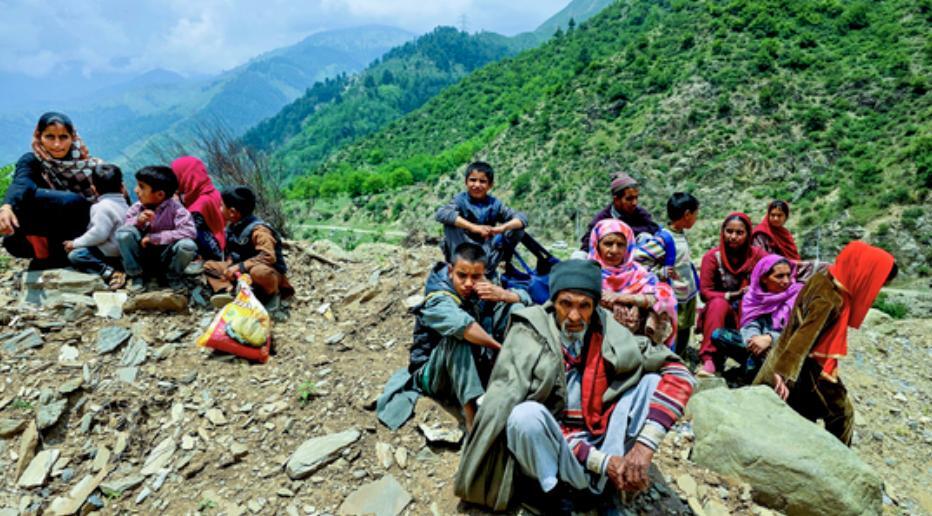
Can’t Trust Pak: J&K Residents on Returning Home After Ceasefire
The recent India-Pakistan ceasefire agreement has brought a sigh of relief to the people of Jammu and Kashmir, particularly those living in the border areas. However, despite the peace accord, many residents are hesitant to return to their homes, citing a deep-seated mistrust of Pakistan. In recent days, several areas of J&K saw intense shelling and clashes between Indian and Pakistani forces, leaving a trail of destruction and devastation in its wake.
For residents like 35-year-old Rohan, the thought of returning to his village is daunting. “I am desperate to go to my village because I can’t open my shop,” he said, his voice laced with frustration. “But people still believe war isn’t over.” Rohan’s sentiments are echoed by many others in the region, who are wary of returning to their homes despite the ceasefire.
The reason for their reluctance is simple: they can’t trust Pakistan. The repeated instances of cross-border shelling and violence have left a deep scar, and many residents believe that the ceasefire is just a temporary reprieve. “We have seen the worst of Pakistan’s aggression in the past few weeks,” said a resident of the border town of Poonch. “Why should we trust them now?”
The fears are not unfounded. In recent days, Pakistan has been accused of violating the ceasefire agreement on multiple occasions, prompting Indian forces to respond with retaliatory fire. The ongoing tensions have left many residents feeling anxious and uncertain about their future.
“We have been living in fear for weeks,” said a resident of the town of Akhnoor. “We don’t know when the firing will start again. We can’t trust Pakistan to keep its word.” The resident’s sentiments are echoed by many others in the region, who are struggling to come to terms with the ongoing tensions.
The reluctance to return to their homes is not just limited to the residents of the border areas. Even those living in the interior districts of J&K are hesitant to venture out, fearing that the ceasefire may not hold. “We are stuck in a limbo,” said a resident of the city of Jammu. “We don’t know what to do. We can’t go back to our homes, but we can’t stay here either.”
The situation is particularly dire for those who have been displaced by the conflict. Many families have been forced to flee their homes, leaving behind everything they own. The lack of trust in Pakistan is a major factor in their reluctance to return to their homes. “We can’t go back to our village,” said a resident of the border town of Samba. “Pakistan will just start shelling again. We are stuck here, with nothing to do.”
The situation is further complicated by the ongoing blockade of the Jammu-Srinagar National Highway, which has left many residents stranded. The highway is the only link between the Kashmir Valley and the rest of the country, and its blockade has left many residents without access to essential supplies.
The Indian government has been working to restore normalcy to the region, but the task is a daunting one. The ongoing tensions with Pakistan are a major impediment, and the lack of trust between the two nations is a significant challenge. “We are doing everything we can to restore normalcy to the region,” said a government official. “But it’s a complex situation, and it will take time to resolve.”
In the meantime, residents like Rohan are left to ponder their future. “I just want to go back to my village,” he said, his voice filled with longing. “I miss my shop, my family, and my friends. But I can’t trust Pakistan to keep its word. I am stuck in a limbo, with no end in sight.”
As the situation in Jammu and Kashmir continues to evolve, it is clear that the lack of trust between India and Pakistan is a major factor in the reluctance of residents to return to their homes. The Indian government must work to build trust with Pakistan, and to ensure that the ceasefire holds. Until then, residents like Rohan will be forced to remain in limbo, unsure of what the future holds.






